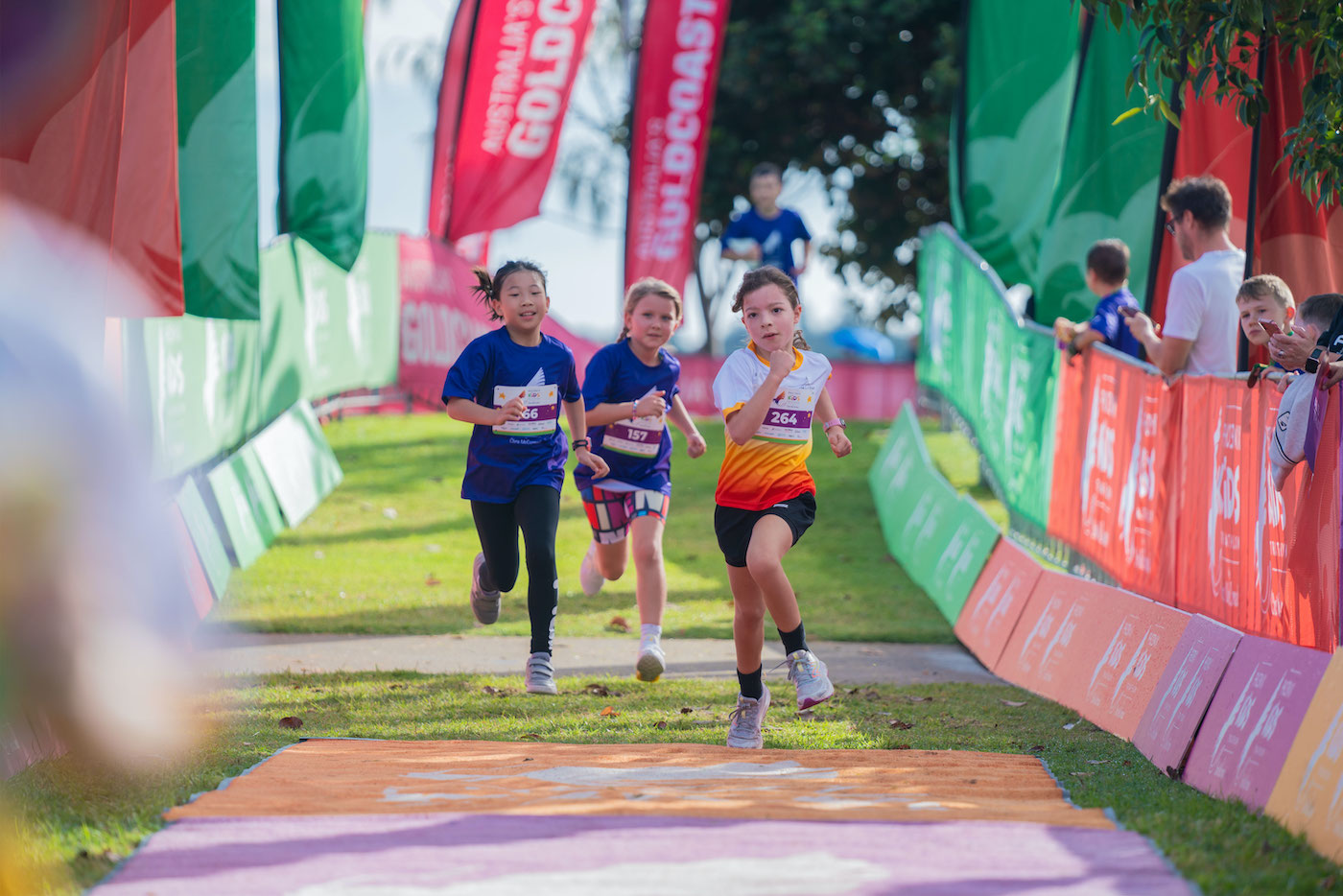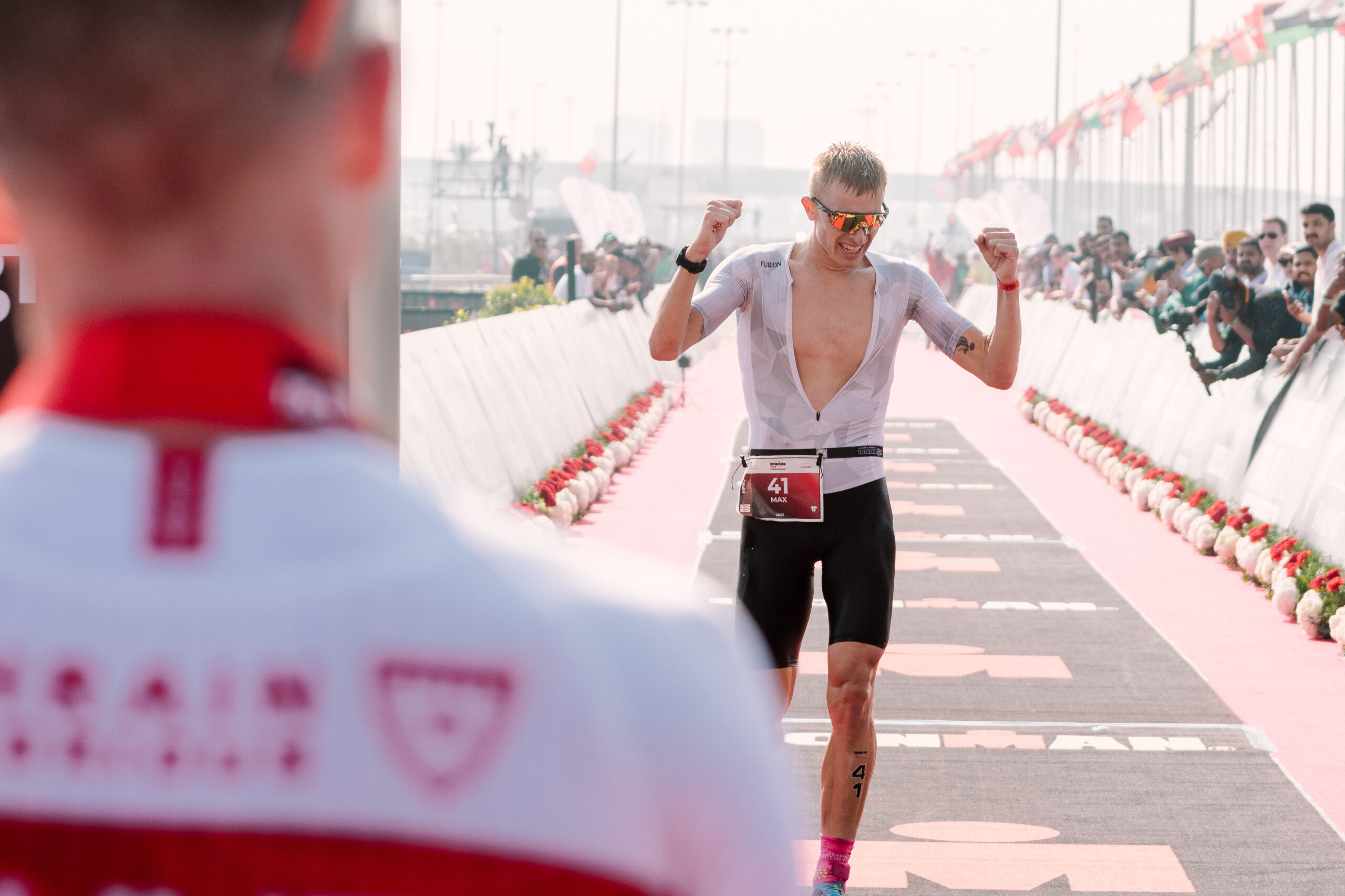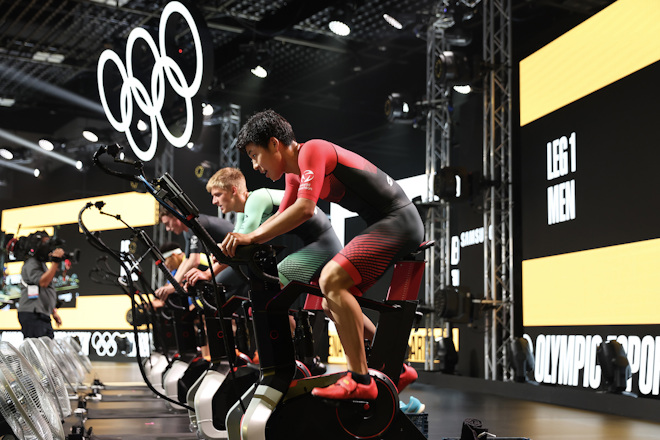As the Tokyo Olympic Games draw near, we asked MANA CEO and four-time triathlon world champion Chris McCormack to discuss who he thinks will be major players in the individual triathlon events as well as the inaugural mixed relay. (Included are picks from Sub7 and Sub8 Project athletes Alistair Brownlee and Lucy Charles-Barclay.)
No one’s ever been able to predict the winner of an Olympic triathlon, the exception being Alistair Brownlee defending his gold in Rio. Tokyo is also a very different Olympic Games, with no international crowds and a more restrained and restricted way of going about things with all the quarantine and testing required of the athletes. So with this whole disruption, we don’t know how it’s going to go.
Thanks to the year’s delay, nothing is a foregone conclusion and whoever would have been the favorite in 2020 will not necessarily be the one to beat in 2021. Already the results from this year’s World Triathlon Championship Series (WTCS) and World Cup races are showing a changing of the guard. The younger ones are stepping into the spotlight, while the ones who would have been at the end of their short-course career or would be transitioning into long-course have been put into a holding pattern.
Individual Men
If you look at the statistics on the men’s side, Kristian Blummenfelt is the best standard distance triathlete in probably the last three years of racing. He’s very solid. Of course, you can’t go past two-time world champion Vincent Luis as well.
With Tokyo you need to take the heat into consideration. I’m going to go with a smaller athlete who handles heat well, like Tyler Mislawchuk, Hayden Wilde, or Alex Yee. Maybe throw the Belgian Jelle Geens in the mix, and of course Rio bronze medalist Henri Schoeman has that big swim and bike to keep him in contention.
Watch out for Yee if his swim is there on the day, which he seems to have improved based on his performance in Leeds. The best-performing athlete in heat in my opinion is Tyler Mislawchuk who won the test event in 2019.
The main question is whether the bike leg will be aggressive enough to keep the pack split and give the frontrunners enough road to avoid being chased down. If they all come together, then it’s a shootout and the fast runners like Mario Mola, Jake Birtwhistle, Yee, and Wilde can make their move. Look at them to pull off a Simon Whitfield-type performance staying in the mix on the swim and bike, then running into the lead as the other athletes struggle to handle the temperatures.
Alistair Brownlee’s picks: Tyler Mislawchuk, Alex Yee, Jonathan Brownlee
Lucy Charles-Barclay’s picks: Kristian Blummenfelt, Alex Yee, Morgan Pearson
Individual Women
I think this will be a race suited for aggressive frontrunners.
Fast swimmers up front with aggressive tactics on the bike will shape the race, driven by Jess Learmonth, Maya Kingma, Flora Duffy — and if she finds her form again, Katie Zaferes.
A small group on this course will move more effectively. An organised pack with a good patron like Duffy to lead the charge with her bike prowess and balance of disciplines could set the race up in their favour, like we saw in the test event and more recently in Leeds.
You can’t discount the British team because they will all be up the front in that swim group: Jess Learmonth, Georgia Taylor-Brown, Vicky Holland. And you’ve got to look for those athletes that are currently shining and performing over the standard distance: Kingma, Taylor Knibb and Summer Rappaport. Knibb has shown she’s in amazing form, and she’s still young.
Obviously, Duffy is very hard to beat and potentially will be battling for the gold alongside Learmonth and Taylor-Brown. Looking at her results over the last few races, I’m going to go with Kingma also snatching up a medal.
But if it comes down to a running race, look for an Ashleigh Gentle. Whether the fact that she hasn’t raced in two years may be detrimental to her, we’ll find out. I think Duffy is the only one with the experience to be able to put that time aside.
My heart will always tend to back Nicola Spirig who is not only the best in the field at preparing for Olympic cycles, but has followed the same preparation coming into Tokyo as she did for Rio. She nearly took down Gwen Jorgenson to grab her silver medal in Rio, backing up her Gold from London. It was the most Jorgenson had been pushed in a race for three years.
Spirig is a no-fuss, strong, down-to-business racer with a huge experience base that dwarfs everyone in the field. In my opinion you would be crazy not to pick her for a medal. If the race rolls in her favour she will turn the lights out on this field and take the gold. She is tough to take down in a running match race, especially in tough conditions. I have immense respect and admiration for her. I think she could end her racing career in Tokyo with a medal of any color (it will come down to the day’s racing) but she will be in this mix and is on my gold medal athlete short list.
Alistair Brownlee’s picks: Jess Learmonth, Flora Duffy, Georgia Taylor-Brown
Lucy Charles-Barclay’s picks: Nicola Spirig, Flora Duffy, Jess Learmonth
Mixed Relay
In my opinion, a nation’s performance in the mixed relay hinges on the depth of a nation across their men and women. Additionally, I think the women’s racing takes up 60 to 65% of the value of that race. The men’s legs are a lot closer in terms of pace, so it is the women’s legs that determine way more which teams win or lose. That’s why the mixed relay is a true test of the depth of a nation’s high performance programs.
The perfect example is Norway: they have such strong men, but as seen last year in Hamburg as well as in the mixed relay qualification event in Valencia, the combined performances were only enough to get them to fourth place.
So, look at those nations with strong women.
The best nation to do that in the last Olympic cycle have been the French because of their French Grand Prix and their continued focus on this. And they have also prioritised selecting athletes based on mixed relay performance rather than for the individual races. Over that distance, Cassandra Beaugrand and Leonie Periault are amazing and strong and that provides a strong foundation for the French to secure the win.
The British system is still so strong from the Brownlee era with so much depth in the women: Olympic bronze medalist Holland and now Learmonth and Taylor-Brown. And you’ve got Yee and Jonny Brownlee. The English can win the event.
The Americans are always so strong on their female side, and they’ve qualified three so they’re spoilt for choice. Will they take Knibb and Rappaport, or does Zaferes get a start? And now they’ve got big running prowess on the men’s side that puts them right in the hunt.
The Australians are very strong as well, with the advantage of experience having been on the podium of the Mixed Relay world championships from 2015 to 2019, winning in 2017. All six of the athletes selected also have done their fair share of mixed relay racing for the nation. Look out for Ashleigh Gentle who can ride solo, so she can close gaps even on her own. If Birtwhistle gets a start, he’s got a devastating back-end finish. Matt Hauser could be the fastest ever relay racer.
Alistair Brownlee’s picks: France, Australia, Great Britain
Lucy Charles-Barclay’s picks: France, Great Britain, USA
Mixed Relay vs. Individual Race
Most nations have picked athletes focusing on individual gold medal potential, and if they’ve qualified four or five athletes they’ll just make up a relay from those. The French have focused on the relay in their selection. Australia is the only nation to have qualified the maximum of three male and three female athletes.
We assumed that all the athletes would have to start the individual race, whether they were selected for individual or relay performance. But the World Triathlon Athlete Committee statement asks that the choice be left up to the athlete amid rumours that some nations plan on sitting out athletes to keep them fresh for the relay.
There’s some time between the individual races and the mixed relay event. Unlike on the World Triathlon circuit where the mixed relay takes place a day or two after the individual races, the Olympics has 72 hours between events. While that’s still not a lot of time to recover, and no one wants to race the standard distance triathlon in 40-degree Celsius heat three days before another event, it’s part and parcel of racing.
It will be interesting to see how it pans out. This is the first time the mixed relay is part of the Olympic Games, so anything that happens will be historic and will set precedent. I’m glad we all will get to see this finally happen.




